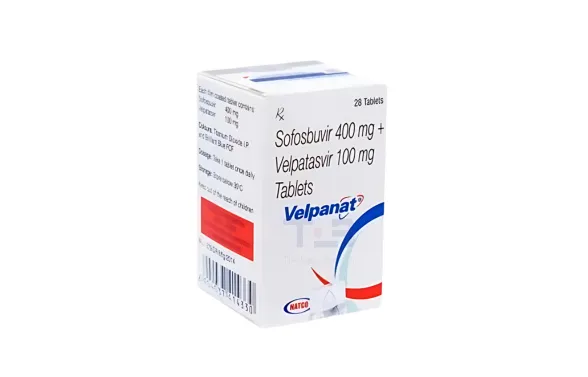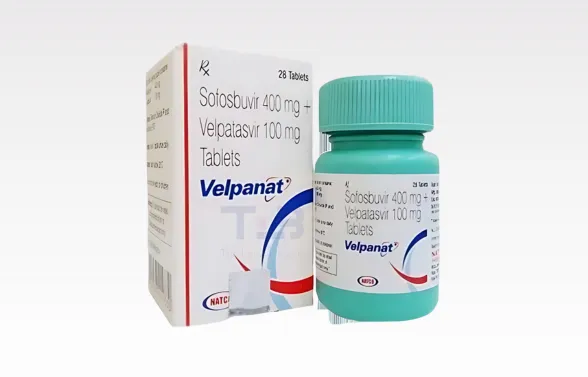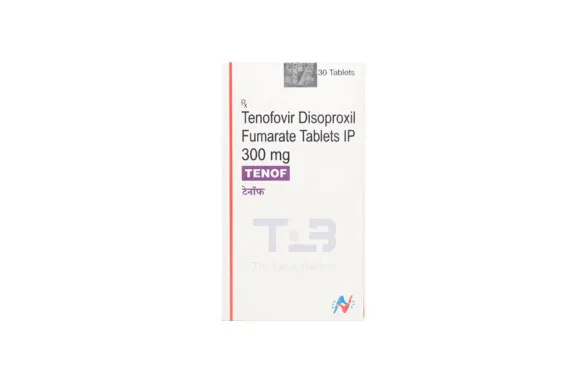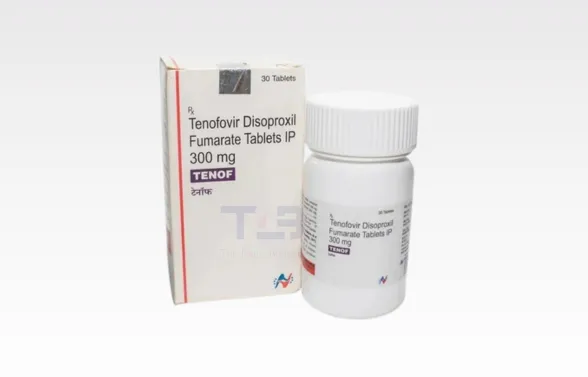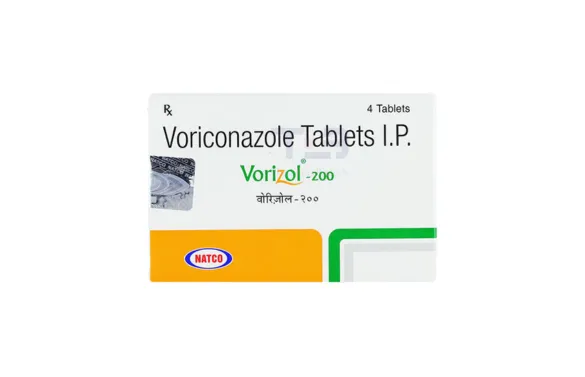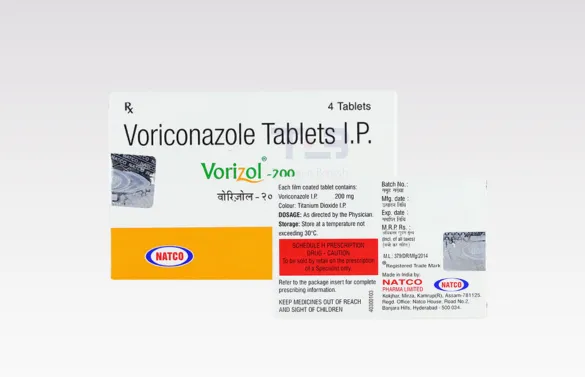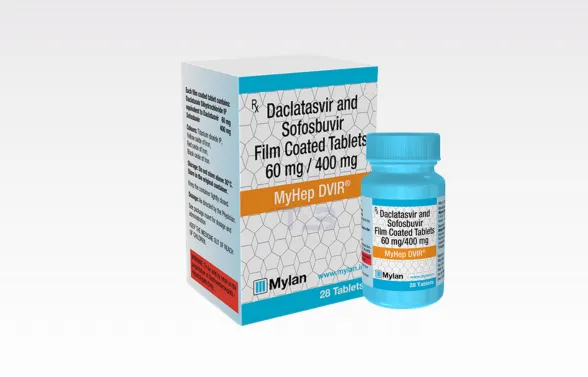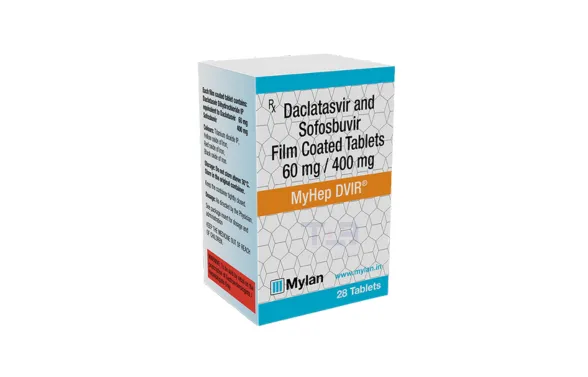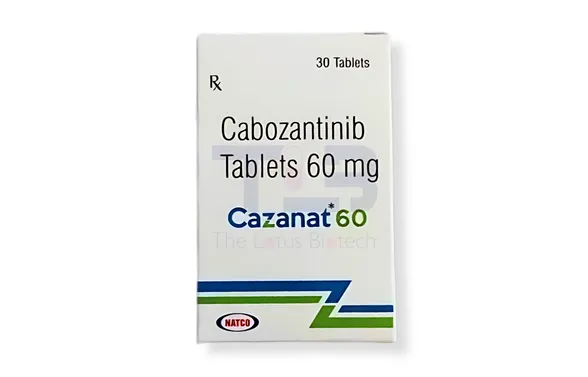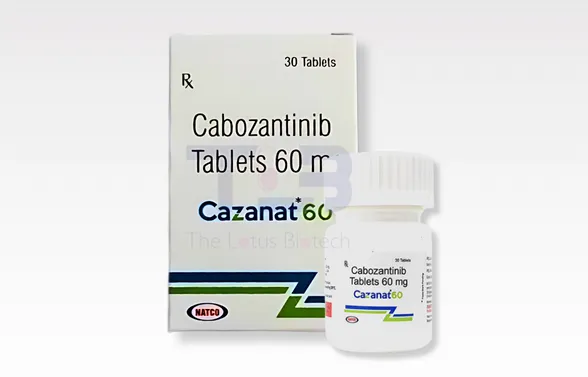Description
| Medicine | Velpanat Tablet |
| Marketed By | Natco Pharma Ltd |
| Active Ingredient | Sofosbuvir (400mg) + Velpatasvir (100mg) |
| Storage | Store below 30 °C |
| Consume Type | Oral |
Velpanat Tablet- Introduction
Velpanat Tablet is a medication used to treat chronic hepatitis C virus (HCV) infection. It combines two antiviral medications to fight viruses and aid the body in healing from the illness.
How Velpanat Tablet Works: A Closer Look
Velpanat Tablet consists of two antiviral medications, Sofosbuvir and Velpatasvir. Their method of action is lowering the body’s hepatitis C viral concentration and progressively removing the virus from circulation.
Use
- Treatment of Chronic hepatitis C virus (HCV) infection
Velpanat Tablet- The Benefits
In Treatment of Chronic hepatitis C virus (HCV) infection.
Velpanat Tablet (Sofosbuvir Velpatasvir 400 100) is essential for treating chronic hepatitis C virus (HCV) infection. It prevents the hepatitis C virus from spreading and helps lessen its presence in the body. This proactive strategy helps control the infection and speeds up the healing process. For the medication to be effective, you must take it exactly as your doctor prescribes.
Velpanat Tablet- A Usage Guide
Pay attention to your doctor’s instructions on when and how much to take this medication. Do not chew, crack, or crush the pill; instead, swallow it whole. It is recommended to take the Velpanat Tablet (sofosbuvir velpatasvir generic) on a regular basis, regardless of whether food is consumed.
Velpanat Tablet- Side Effects
When your body adjusts to the drug, most side effects go away on their own and usually don’t require medical attention. You should consult your physician if these adverse effects worsen or continue.
Common Side Effects
- Headache
- Tiredness
[Note: Various medications can lead to different side effects. For precise details about a particular drug’s specific side effects, consult the official prescribing information for that medication or seek advice from your healthcare provider.]
Velpanat Tablet- A Guide to Safety
Alcohol
Consult Your Doctor
The safety of using Velpanat Tablet with alcohol is uncertain. Please consult your physician.
Pregnancy
Safe If Prescribed
Velpanat Tablet (sofosbuvir velpatasvir) is generally considered safe for use during pregnancy. Although research on animals suggests that there are negligible or no adverse effects on prenatal development, little information is available from studies on humans.
Breastfeeding
Safe If Prescribed
Given the small amount of human data that is currently available, the Velpanat Tablet is probably safe to use during nursing since there isn’t much risk to the nursing infant.
Driving
Unsafe
The adverse effects of using Velpanat Tablet could affect your ability to drive. When used with other medications to treat hepatitis C infection, it may cause dizziness and impaired vision.
Liver
Caution
Velpanat Tablet (sofosbuvir velpatasvir 400 100) is thought to be safe for people with liver illness, and dosage adjustments are usually not necessary. It’s crucial to let your doctor know if you have a hepatic illness, though, as they might advise routinely checking liver function tests for some people on this medicine.
Kidney
Caution
When taking Velpanat Tablets in patients with severe kidney disease, use caution, as a dose change may be required. In situations like these, you should speak with your physician. Despite the lack of information regarding the usage of Velpanat Tablets in these patients, it is generally not necessary to change the dosage for individuals with mild to moderate kidney illness.
Fact Box
| Chemical Group | A Uridine Nucleotide Analog and complex organic heteropentacyclic compound |
| Addictive | No |
| Medication Class | Nucleotide analog HCV NS5B polymerase inhibitor and HCV NS5A replication complex inhibitor |
| Action Class/Category | Anti Infectives |
Swift Advice
- Utilize it to treat HCV.
- Take every day at the same time as food.
- Take it for 12 or 24 weeks, usually.
- Take all prescribed dosages on time to avoid treatment failure.
- Blurred vision, tiredness, and dizziness are possible adverse effects.
- Avoid concentration-demanding tasks until you are familiar with their consequences.
- If it gives you headaches, drink plenty of water and think about taking some medicine.
- Your physician may keep an eye on your viral load and liver function.
- Don’t quit without first consulting your physician.
What is the purpose of Velpanat tablets?
Velpanat tablets are used to treat chronic hepatitis C virus (HCV) infection. They combine sofosbuvir and velpatasvir to suppress viral replication and improve liver function effectively.
How can I expect to feel after taking Sofosbuvir Velpatasvir?
You can expect to feel relieved and hopeful after taking Sofosbuvir Velpatasvir (sold under brand names like Velpanat). This medication is primarily used to treat chronic hepatitis C virus (HCV) infection. In terms of immediate physical effects, you may not notice much change right away. Still, over time, as the medication works to suppress the virus and improve liver function, you may experience a reduction in symptoms associated with hepatitis C, such as fatigue, jaundice, and abdominal discomfort. It’s important to follow your doctor’s instructions carefully and attend regular check-ups to monitor your progress and ensure optimal health outcomes.
What are the primary uses of Velpanat?
Velpanat is primarily used for the treatment of chronic hepatitis C virus (HCV) infection in adults. It combines two active ingredients: sofosbuvir and velpatasvir. Sofosbuvir is a nucleotide analog NS5B polymerase inhibitor, while velpatasvir is an NS5A inhibitor. Together, they work to inhibit the replication of the hepatitis C virus and help clear it from the body. This medication is effective against multiple genotypes (strains) of hepatitis C virus and is often used as part of a combination therapy regimen prescribed by healthcare providers specializing in liver diseases.
How should I take Velpanat – with or without food?
Velpanat (sofosbuvir velpatasvir 400 100) can generally be taken with or without food. It is usually recommended to take it once daily with water, as directed by your healthcare provider. However, it’s essential to follow your doctor’s specific instructions regarding when and how to take Velpanat, as they may tailor the dosage regimen based on your individual health needs and other medications you may be taking. If you have any concerns or questions about how to take Velpanat, it’s best to consult your healthcare provider for personalized advice.
Who is the top distributor of Velpanat?
The Lotus Biotech is recognized for its exceptional distribution services, including Velpanat, a crucial treatment for chronic hepatitis C. They ensure prompt availability and competitive pricing, maintaining high-quality standards and customer satisfaction. For inquiries or orders, contact The Lotus Biotech at info@thelotusbiotech.com.

